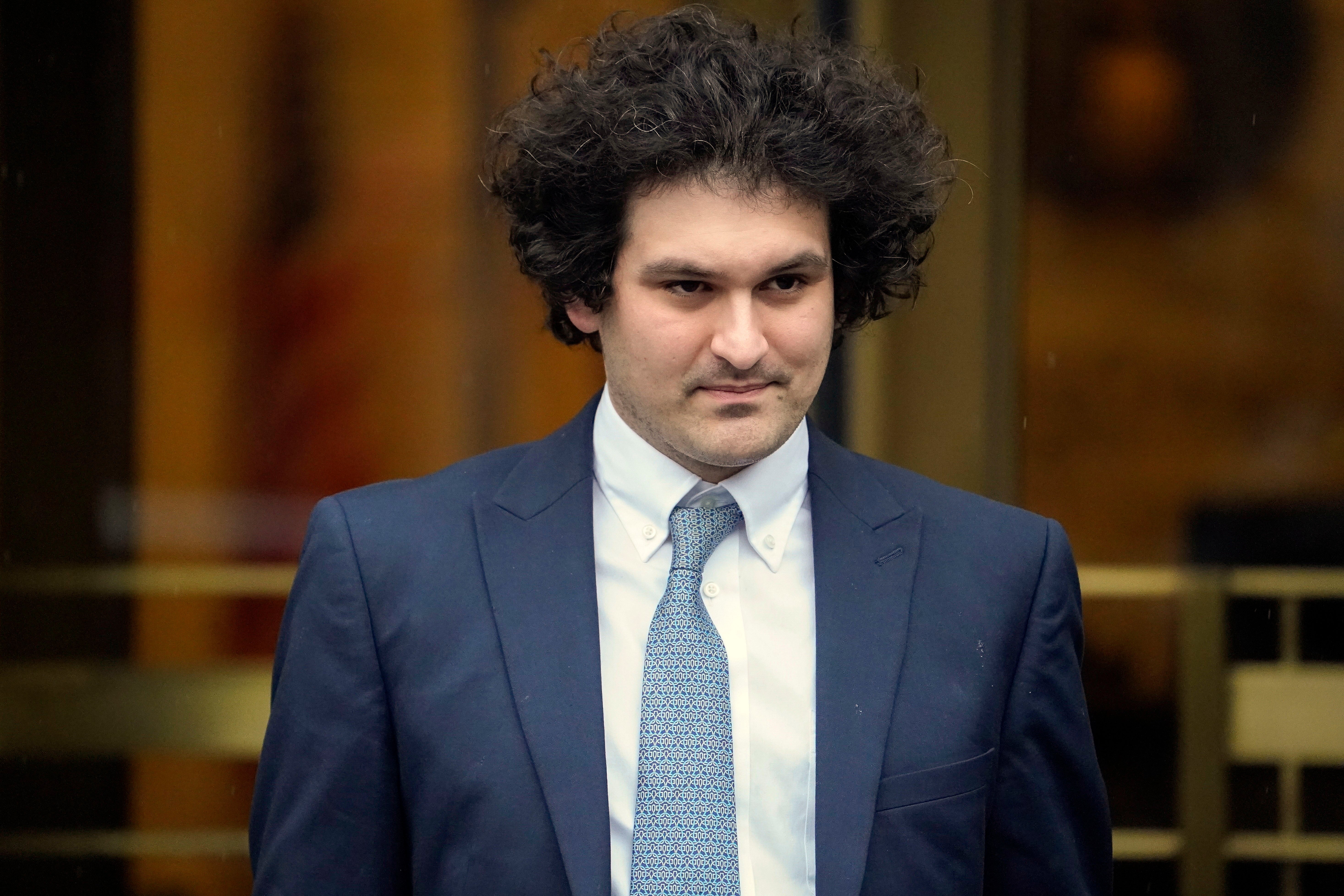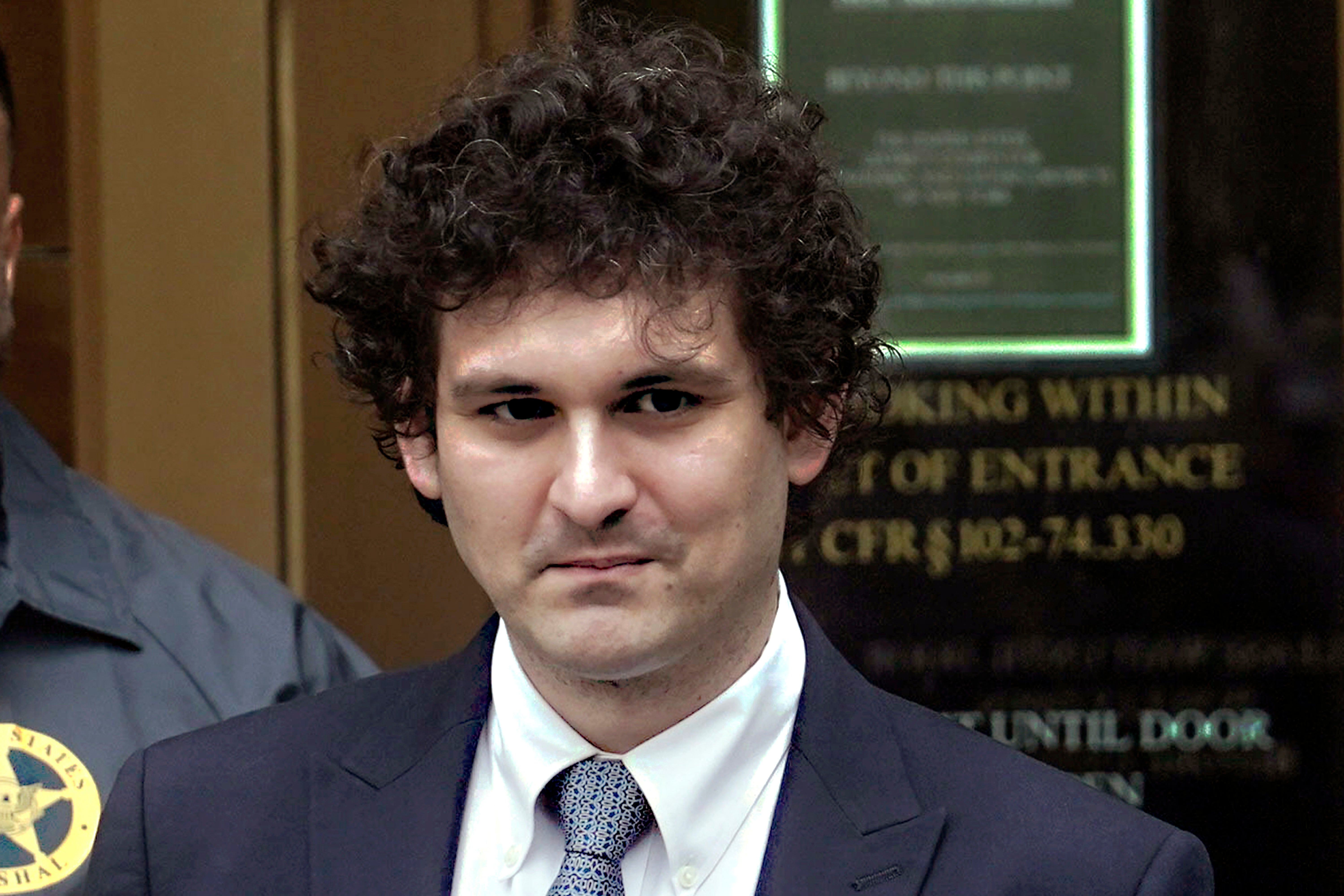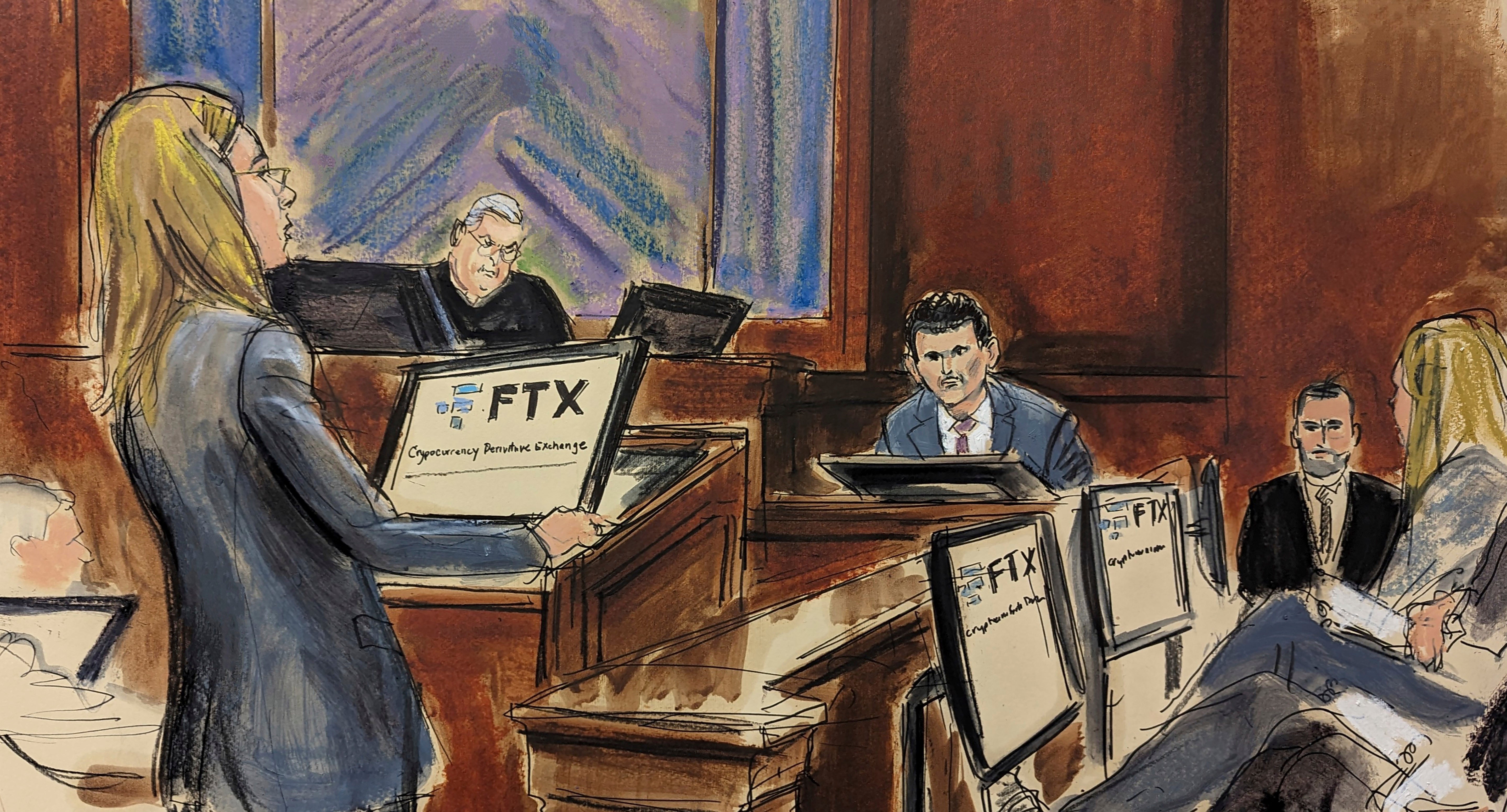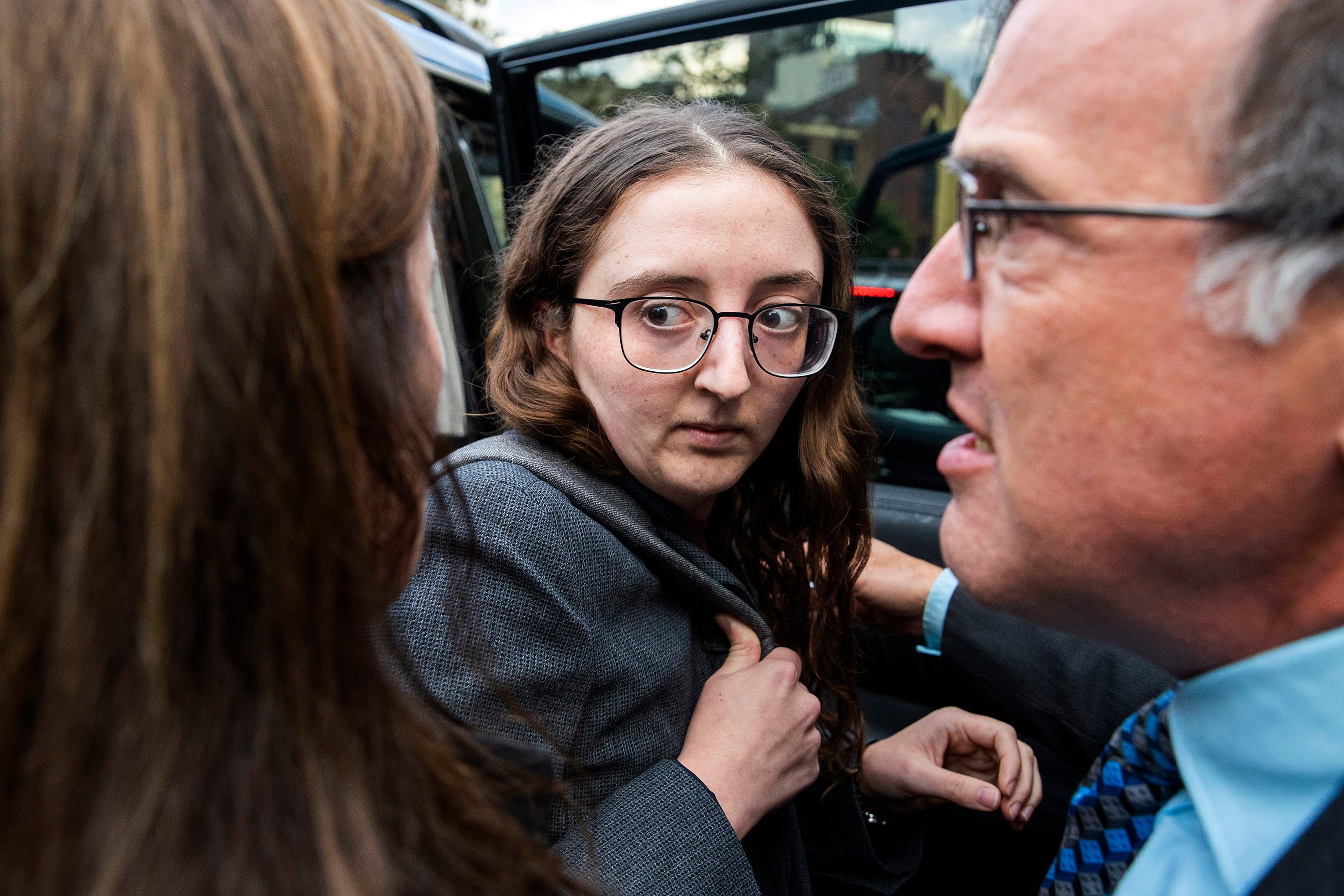From crypto king to convicted fraudster: Sam Bankman-Fried’s spectacular fall from grace
The once-hailed ‘boy wonder’ of the crypto industry rose to prominence after founding trading firm Alameda Research in 2017 at the age of 25. So what went wrong? Bevan Hurley looks back at Bankman-Fried’s remarkable rise – and even more dramatic fall as he begins his 25-year prison sentence


Sam Bankman-Fried was once hailed as the boy wonder of the crypto industry – an “altruistic” self-made billionaire who hung out with presidents and pop stars and had the ear of lawmakers from both parties in Washington DC.
Nearly one year after his cryptocurrency empire FTX imploded, the 32-year-old was found guilty of committing one of the largest corporate frauds in US history, following a trial in New York. Then, District Judge Lewis Kaplan sentenced Bankman-Fried to 25 years in prison and ordered him to forfeit $11.2bn on 28 March 2024.
Prosecutors argued that Bankman-Fried siphoned billions of dollars from FTX customers to prop up his ailing hedge fund Alameda Research, while funding a luxurious life in the Bahamas.
They outlined to the jury how he sought to gain political influence by making $100m in political donations prior to the 2020 presidential election to ensure light-touch regulations of the crypto industry.
In December, Bankman-Fried was arrested at his $40m apartment complex in Nassau and indicted on fraud, money laundering, and campaign finance charges. He was extradited back to the US, and placed under house arrest at his parents’ Palo Alto home on a $250m bail.
His bail was revoked in August when a judge ruled that he had harassed his former girlfriend and fellow FTX executive Caroline Ellison, who testified against him during his trial.
Bankman-Fried was held in the Metropolitan Detention Center in Brooklyn while awaiting trial. Now, Mr Kaplan says he will issue recommendations to the Bureau of Prisons that Bankman-Fried to serve his sentence in San Francisco, where he can be close to his family, receive medical care and avoid becoming a potential target for violence as he begins his 25-year sentence.
Who is Sam Bankman-Fried?
Bankman-Fried was born and raised in the Bay Area in California, where both of his parents are law professors at Stanford Law School.
He graduated from the Massachusetts Institute of Technology (MIT) with a physics degree before taking a job at Jane Street Capital and, as an adherent to “effective altruism”, began donating half of his income to charity. At his sentencing hearing, the judge noted Bankman-Fried’s privileged upbringing.
“I’ve considered the guidelines and the 3553 factors,” Mr Kaplan said moments before he unveiled his sentence. “Much of what was said about the defendant’s background is undisputed. He was privileged, had loving and devoted parents, he had every advantage they could confer on him, he went to MIT.”
“When not lying, he was evasive, hair-splitting, trying to get the prosecutors to rephrase questions for him,” Mr Kaplan continued. “I’ve been doing this job for close to 30 years. I’ve never seen a performance like that.”
Bankman-Fried first rose to prominence after founding cryptocurrency trading firm Alameda Research in 2017 at the age of 25.

Perennially dressed in shorts and sneakers, with unkempt locks and an awkward demeanour, Bankman-Fried befriended prime ministers, presidents and pop stars. In April, Bankman-Fried hosted the Crypto Bahamas conference, where he led an onstage panel featuring Bill Clinton and Tony Blair, a New York Times profile noted.
Despite having a net worth of $21.2bn, he continued to lead a relatively frugal lifestyle, donating heavily to philanthropic causes, and pledging to donate his entire fortune to charity.
Bankman-Fried emerged as one of the most high-profile crypto champions in Washington DC and used his profile to lobby Congress to relax the rules around crypto trading.
FTX’s rise and collapse
Bankman-Fried, known by his initials SBF, founded Alameda Research in 2017 after figuring out how to exploit a quirk in crypto values that saw Bitcoin trade for slightly less in Asia than in the US.
In 2019, he launched the FTX trading platform that was promoted to investors as a trusted, straightforward exchange. It made money by claiming a percentage of transactions.
When the value of Bitcoin soared in 2021, FTX became one of the largest crypto traders in the world, worth an estimated $32bn.
Bankman-Fried’s profile soared as he amassed a net wealth of around $16bn while receiving fawning media coverage for his so-called “altruistic” beliefs and austere lifestyle.
FTX enlisted a band of celebrity backers including Gisele Bundchen and Tom Brady, hired Larry David to front an expensive Super Bowl advert, and acquired the naming rights to the Miami Heat’s home arena.
Bankman-Fried made around $100m in political donations to both parties, while attempting to influence cryptocurrency regulatory reform, prosecutors said in court filings.
When crypto prices collapsed in 2022, cracks began to emerge in SBF’s empire.
In November, the crypto trade publication Coindesk published a leaked balance sheet showing that Alameda and FTX were “unusually close” and Alameda’s value was built on a “foundation largely made up of a (digital) coin that a sister company invented”.
The story sent shockwaves through the crypto world, and FTX customers raced to withdraw their funds, exposing an $8bn deficit in FTX’s accounts.
Bankman-Fried’s personal wealth fell by an estimated $16bn in a single day on 8 November. FTX filed for bankruptcy days later and Bankman-Fried resigned as CEO.
He was arrested in the Bahamas on 12 December.
The collapse sent a contagion through the crypto industry that caused several exchanges to implode and prices to collapse.
What were the allegations against SBF?
During the trial, prosecutors said that Bankman-Fried orchestrated a wide-scale conspiracy to defraud FTX investors and the Alameda Research hedge fund exchange.
The founder and CEO of FTX used billions of dollars of customer funds for his personal use, and to make millions of dollars of political contributions to federal political candidates and committees.
Bankman-Fried built a “house of cards on a foundation of deception while telling investors that it was one of the safest buildings in crypto”, the Securities and Exchange Commission chair Gary Gensler said in a statement last December.

Bankman-Fried concealed the close ties between Alameda and FTX from investors, while effectively using customers’ funds as an unlimited line of credit to “make undisclosed venture investments, lavish real estate purchases, and large political donations”, Mr Gensler said.
Around 90 US-based investors collectively lost $1.1bn, the SEC said.
Bankman-Fried was charged in the Southern District of New York with seven counts of fraud and money laundering, some of which carry a maximum prison term of 20 years in prison.
In June, prosecutors severed five charges from the current trial which were brought after his extradition from the Bahamas. In August, prosecutors dropped several campaign finance violation charges against Bankman-Fried.
What was SBF’s defence?
Bankman-Fried attempted to convince jurors that he did not have any intent to rip off FTX customers. Rather, his defence attorneys argued, he was out of his depth.
Given his high-profile ties and accomplishments, jurors found it hard to believe that Bankman-Fried was a dunce – as his attorneys made out.
Prior to his conviction, four former FTX executives pleaded guilty to criminal charges related to the company’s collapse and appeared at trial after agreeing to cooperate with prosecutors.

The government’s key witnesses included Caroline Ellison, Bankman-Fried’s ex-girlfriend and the former head of Alameda, and FTX co-founder Gary Wang, who was Bankman-Fried’s childhood friend from math camp.
The outcome
On Thursday 2 November, a federal jury concluded that Bankman-Fried was guilty of defrauding customers on his cryptocurrency exchange out of billions of dollars.
After just four hours of deliberation, the 12-member Manhattan panel convicted him of two counts of fraud and five counts of conspiracy. He potentially faces over a century in prison.
Bankman-Fried reportedly stood and faced the jury as the verdict was read aloud. According to reporters who were present at the hearing, he looked shell-shocked as jurors were polled.
He then sat motionless, looking down at his hands in his lap.
In a statement following the verdict, his lawyer Mark Cohen said, “We respect the jury’s decision. But we are very disappointed with the result. Mr Bankman-Fried maintains his innocence and will continue to vigorously fight the charges against him.”
US attorney Damian Williams told reporters outside court: “Sam Bankman-Fried perpetrated one of the biggest financial frauds in American history.
“The cryptocurrency industry might be new. The players, like Sam Bankman-Fried, might be new. But this kind of corruption is as old as time.”
Bankman-Fried was sentenced several months later, on 28 March. He faces 300 months in prison and must forfeit $11.2bn, per Mr Kaplan’s order. Prior to the sentencing, the former FTX head acknowledged his crimes.
“At the end of the day, I failed everyone that I care about and everything that I care about, too,” the 32-year-old said, just minutes before he was sentenced.
“My useful life is probably over,” he continued. “It’s been over for a while now.”
